When your gutters, HVAC system, sewage system, and appliances are all under pressure, it’s essential to prepare every time the seasons change. We’ll look at how the temperatures and precipitation impact everything from replacing, updating, and cleaning the many components of your home. This seasonal home checklist can save you money on repairs throughout the year.
Table of Contents
- Spring Home Maintenance Checklist
- Summer Home Maintenance Checklist
- Fall Home Maintenance Checklist
- Winter Home Maintenance Checklist
- Interior House Maintenance
- Monthly Tasks
- Quarterly Tasks
- Essential Repairs And Upkeep For Homeowners
- Safety And Security
- FAQs
A seasonal house maintenance checklist is a must for all homeowners that want to retain or improve the value of their property[1]. Here, we’ve organized home maintenance by season, month, and quarter. The closer you can stick to the schedule, the less likely you are to run into a major home catastrophe.
Spring Home Maintenance Checklist

- Landscaping: Now is the time to clear out leaves, branches, and other clutter around the home. This basic landscaping not only helps your grass grow, but it can also reduce the odds of insects or rodents breeding near your home. Consider aerating the lawn to help the water reach the roots.
- Exterior inspections: Inspect your home and roof for wear and tear, holes, or missing pieces. If you need a new shingle or a patch, it is recommended to do so before April showers.
- Gutter: Start with the downspouts and pick out the significant debris by hand. Use a trowel or scoop to remove the rest, then rinse it down with water. Keeping your gutters clear during the spring can improve the lifespan of your roof, as it won’t be weighed down with leaves, twigs, and other debris.
Summer Home Maintenance Checklist
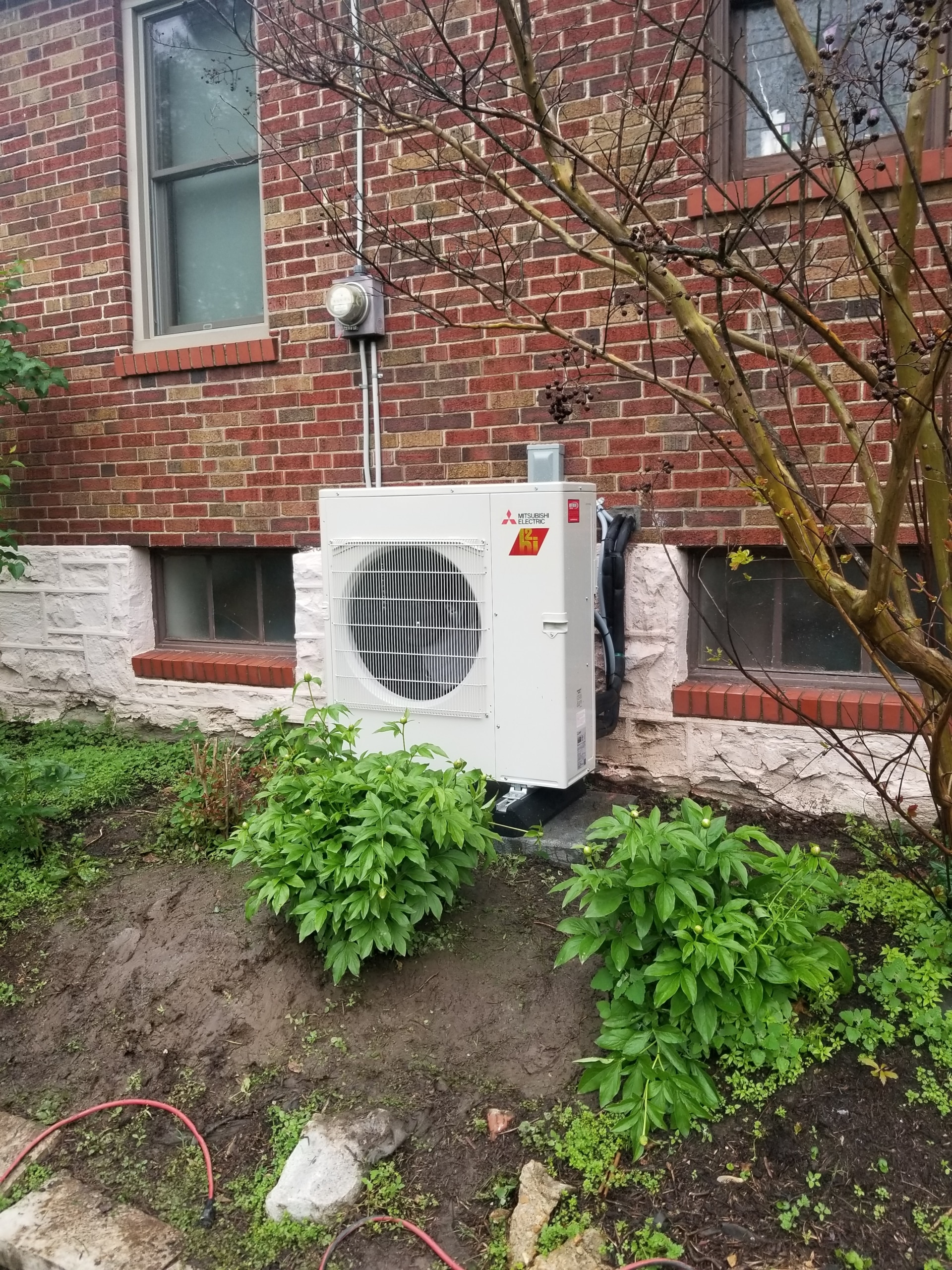
Your summer home maintenance should include the following:
- HVAC: At the beginning of summer, check the refrigerant level and the thermostat, condenser, motor, and evaporator. You may need to add oil, replace the filters, or recalibrate the gauge. Depending on how often you run the AC, you may want to have a professional come out to do the inspection.
- Outdoors: The best thing that you can do for your exterior is to watch for signs of damage to the roof, siding, patios, and decks. Whether it’s termite damage or cracks in the sidewalk, summer is the time to be on the lookout.
- Pest control: Pests will hide wherever they can, so keeping your interior and exterior clear of debris is essential. Consider proactively spraying near your home to discourage pests from making their home there. Call a pest control company if you suspect rodents or insects have taken up residence in your home.
Fall Home Maintenance Checklist
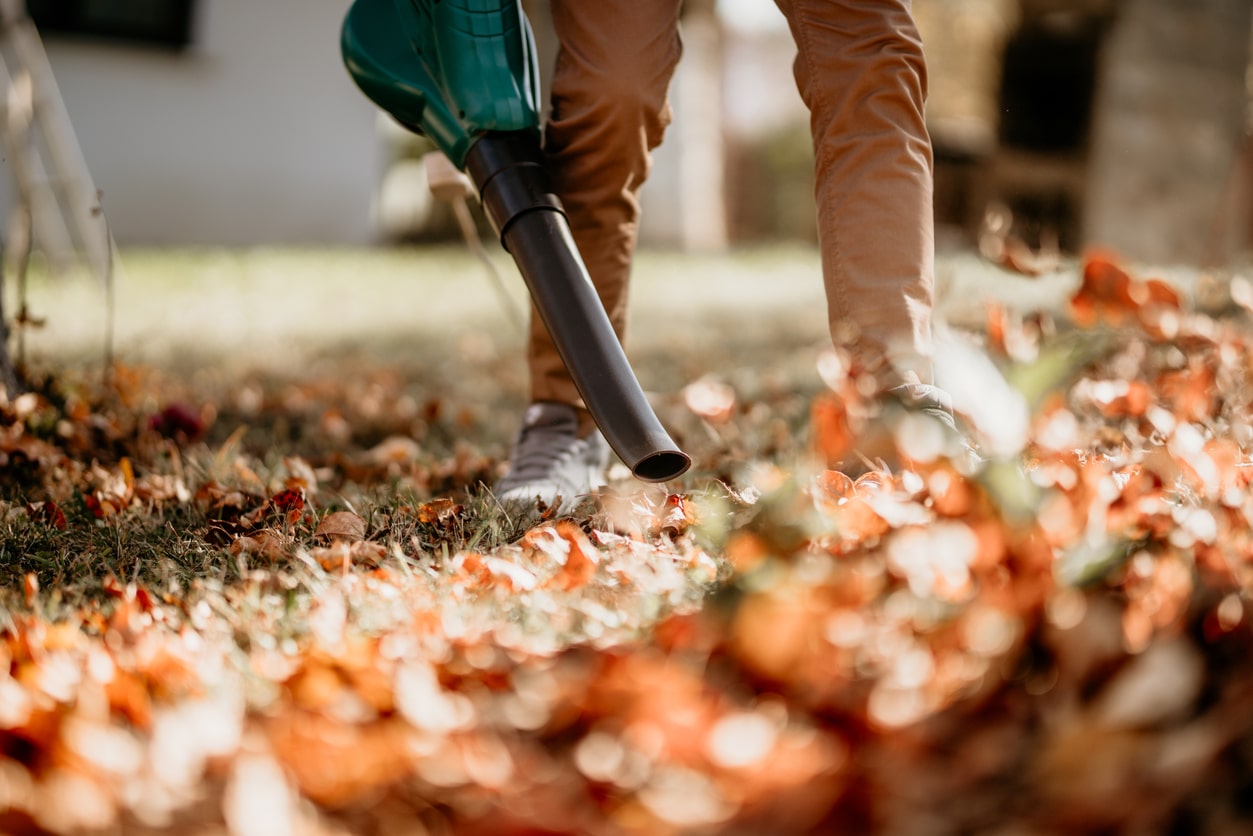
- Heating: Because winter is when you’ll likely need your HVAC system most, now is the time to call a service technician. A professional can check the controls, exchanger, and thermostat before the temperatures take the plunge.
- Leaf removal: Leaves block the light and trap moisture, making your lawn more likely to be plagued with fungus growth. Plus, leaves can house insects and other pests, which will eventually move toward the warmth of your home as it gets colder.
- Window and door inspections: Gaps in your windows and doors will add to your heating bills. Testing your home’s insulation ensures that you close off the entranceways to your home.
Winter Home Maintenance Checklist
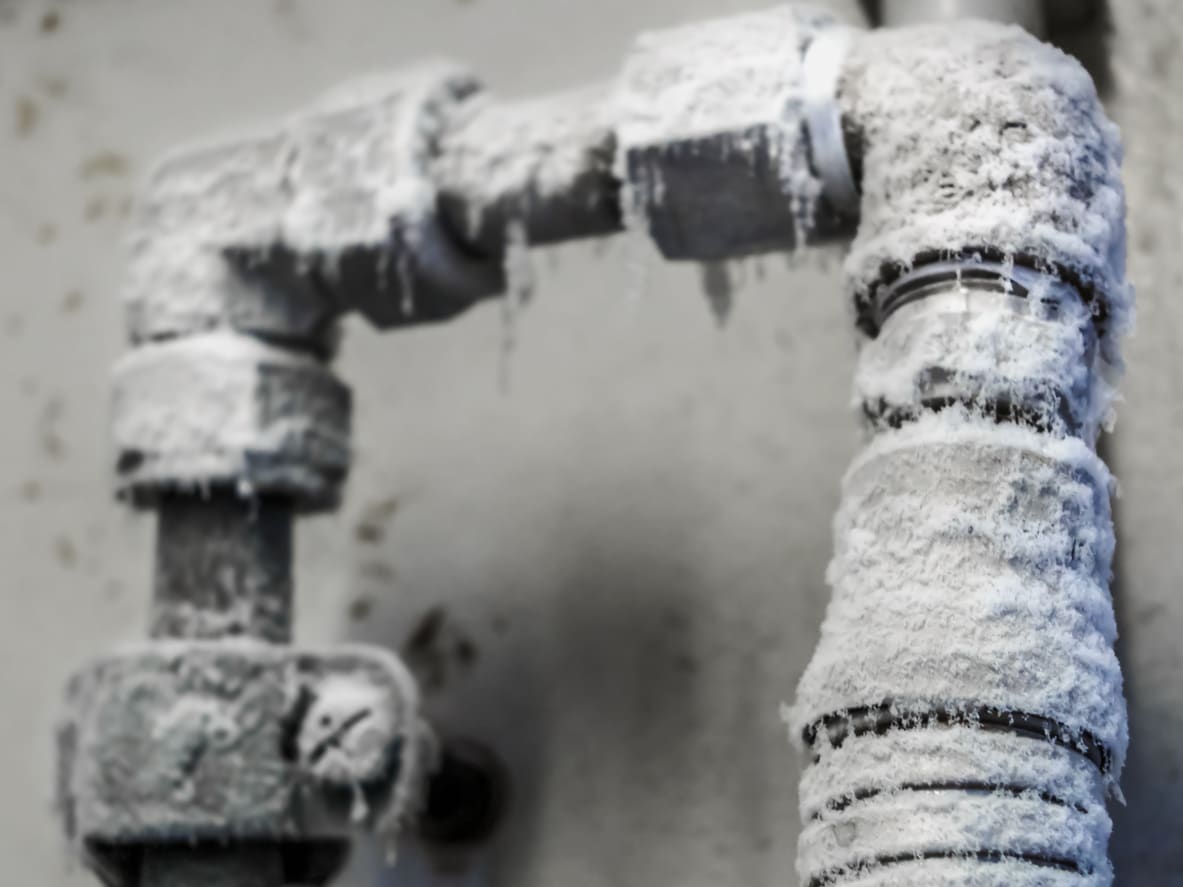
Winter home maintenance checklist should include:
- Winterizing: Insulating your pipes with foam, draining outdoor houses, and hanging more curtains can help keep your home warm during the winter and prevent anything from a pipe burst to a pipe freeze[2].
- Ice dam prevention: Preventing an ice dam starts with better airflow. As long as your attic has a way for the heat to escape, it doesn’t have the opportunity to melt the snow so it can refreeze. Adding vents and caulking leaks can also be a great way to prevent ice dams.
- Interior home maintenance: Make sure you can identify your shut-off valve, just in case your home experiences a pipe burst in winter. Add insulation to your attic and basement, and reset your ceiling fans to clockwise so you can keep rising heat where you need it most.
Interior House Maintenance
A detailed home maintenance schedule is the best way to catch problems early on. More than that, it’s a way to become more familiar with how your home reacts to its everyday environment. For instance, you may notice that your plumbing struggles with extra demands every time you have guests over. Doing so can help you prepare for events throughout the year, so you won’t have to worry about what’s ahead.
Monthly Tasks

- HVAC filters: Homes with plenty of pets will want to replace their filters often. The same is true if you or your family are highly sensitive to allergens in the air.
- Plumbing checks: You don’t need to perform in-depth inspections of your plumbing 12 times a year, but you should be looking for unexplained moisture and listening for sounds of a distressed system (e.g., banging pipes, etc.).
- Appliance maintenance: Older appliances will require regular tune-ups to remain in good shape, but it’s essential to perform maintenance on all appliances to ensure they operate at peak performance. For your most expensive appliances, consider having a professional service them, so you’re less likely to run across expensive repairs in the future.
Quarterly Tasks
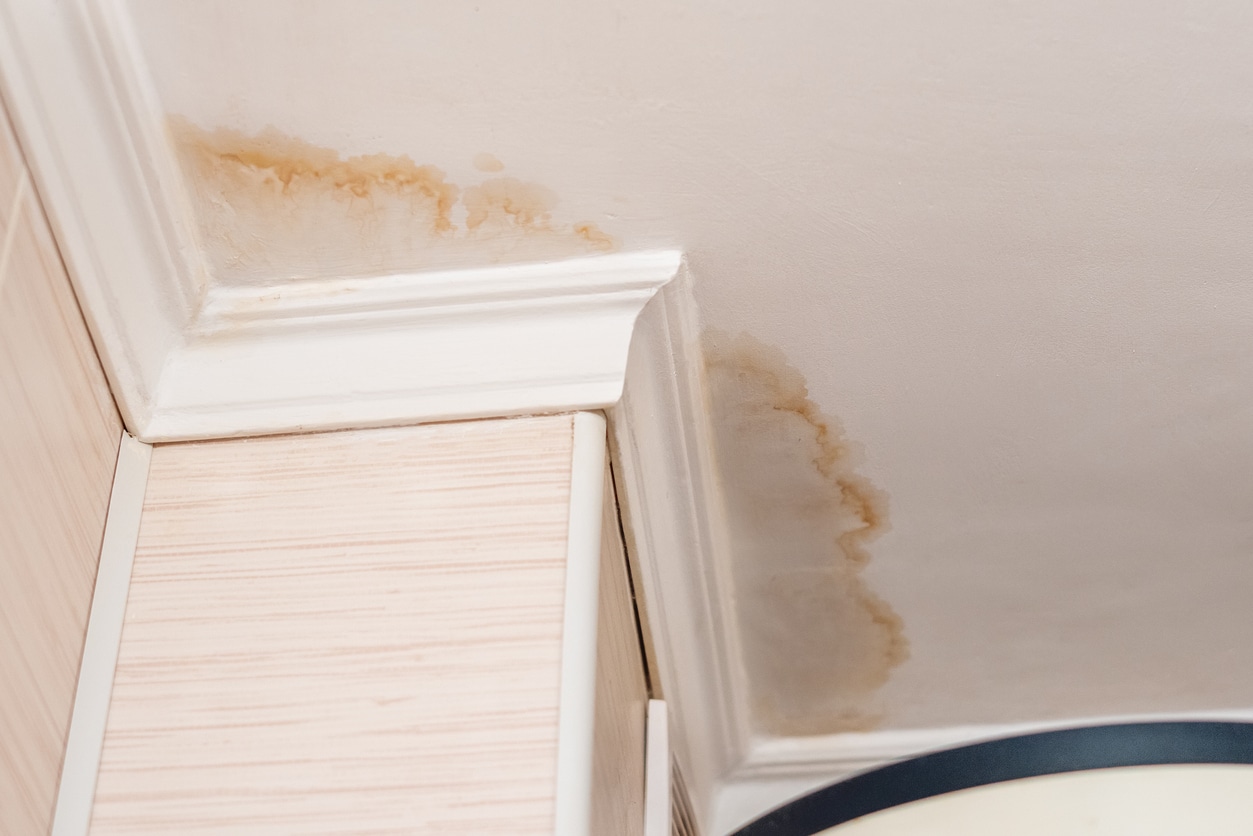
- Deep cleaning: More than just wiping down your surfaces, deep cleaning gets into every nook and cranny of the house. You shouldn’t leave any stone unturned, from the cobwebs on the ceiling to the corners of the closets.
- Smoke/Carbon monoxide detector tests: Running standard checks on these items ensures your family is safe during an emergency.
- Leaks/Water damage: Leaks can occur anytime for any reason, whether your sewage system needs replacing or your roof is damaged. Checking every month for any signs of puddling or water damage can help you identify problems sooner rather than later.
Essential Repairs And Upkeep For Homeowners
All homeowners must complete certain repairs and upkeep throughout the year or risk making their homes more vulnerable to external and internal threats. However, it’s not always clear when to perform these tasks independently and when to call a professional. Here are our tips to keep in mind about common household repairs:
- Safety: Your safety depends on your skill level, as well as how much time and energy you have to devote to the task at hand. However, it’s important to remember that even the most experienced professionals are not immune from throwing out their backs or pulling a muscle.Patching up a hole in your drywall, unclogging a drain, and adding weatherstripping to your windows and doors are fairly foolproof, though you want to remember how your actions can impact the rest of your home. For instance, if you incorrectly diagnose the reason for a clogged toilet, you can inadvertently make the situation worse.
- Professional assistance: It’s typically time to hire a professional when the repair is more involved or you want to learn more about your larger systems.The Hoffmann Brothers helps people with a variety of issues. Still, our bigger goal is to educate people about how everything from plumbing to electrical components keeps their home functioning season after season.
Once our clients have the bigger picture, they can make smarter decisions about their maintenance schedules. Our services help them save money and time because they’re catching problems as early as possible.
If you hire professional help, make sure it’s people who know your city inside and out. Every neighborhood has its own quirks, from the average age of the homes to the zoning laws. A qualified technician will be able to give you the details based on the precise location of your property.
Safety and Security
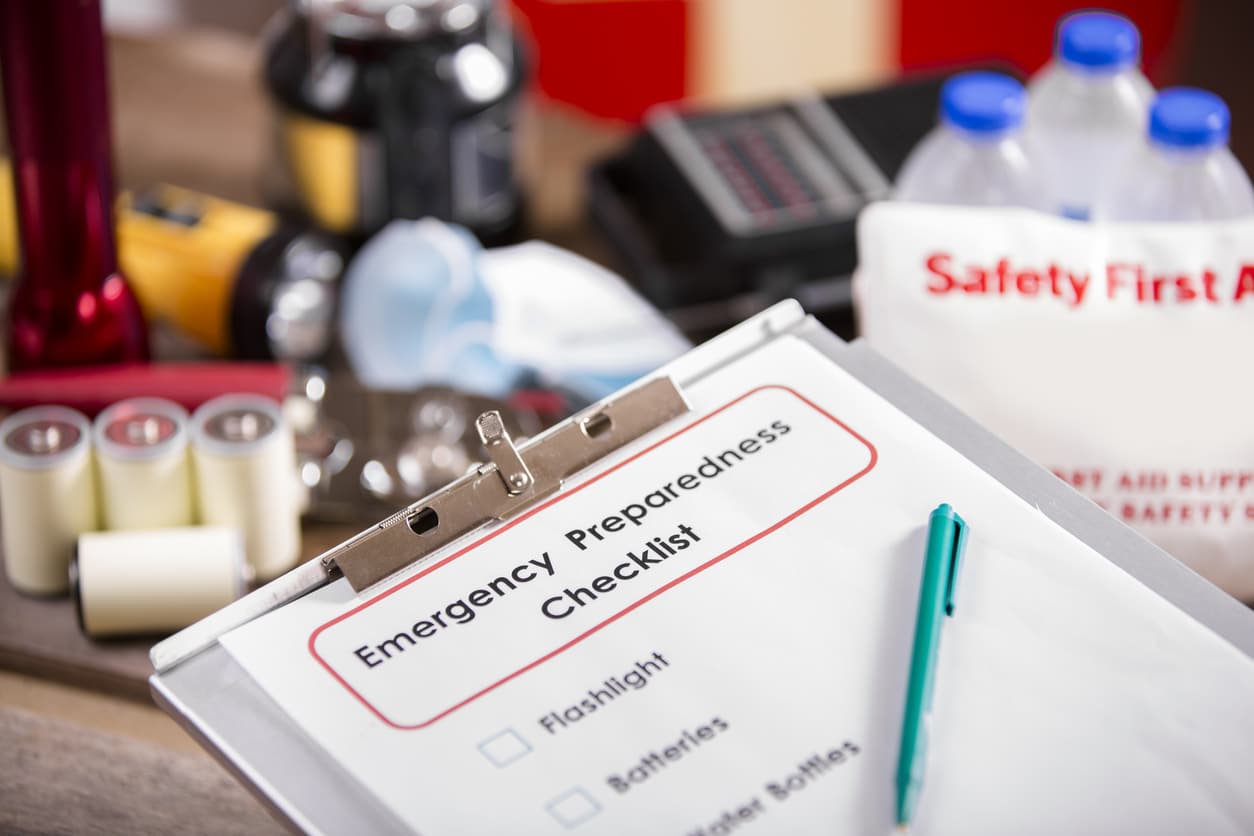
- Escape plans: Ideally, you should have at least two exits for each room (e.g., window and door). Draw out a simple floor plan and mark off the pathways with arrows so it’s clear what’s expected of everyone, no matter what area of the home they’re in.
- Very important places: Everyone should also know where to find the fire extinguishers, with at least one being in the kitchen and one for every level of the home. The family should also know where to meet one another to avoid confusion during the chaos.
- Run emergency drills: Just as you would at work or school, practicing the escape plan can help everyone remember what they should do. Ideally, it would help to run several scenarios. For instance, if there is a fire, people should practice how to avoid smoke (e.g., crawling on the ground).
At Hoffmann Brothers, we’ve seen how conscientious property owners are far less likely to need emergency services, major repairs, etc. Using our house maintenance checklist, you can not only become more familiar with your property, you can also put more of your money toward improvements rather than upkeep.
FAQs
Eco-friendly maintenance starts with eliminating waste and using the right tools to keep your home in order. Limit the number of chemicals that you use that may damage the environment, and choose technology that reduces your carbon footprint. For instance, install low-flow toilets when it comes time to replace them.
You’ll need standard tools (e.g., screwdriver, wrench, hammer, etc.) to make standard repairs throughout the house. These toolsets, which you can purchase at any hardware store, may be basic, but they often inspire people to try more advanced repairs. From there, you can add to and up your collection of tools.
Regular HVAC system maintenance will save you money on repair and replacement costs and typically lower your utility costs. The more efficiently your system performs, the less likely you are to overspend.
The most common signs include yellowing walls or unexplained puddles or moisture (either in the home or the yard). The best way to spot the signs of a potential water leak is to do a visual inspection of the home at least once a quarter (preferably once a month).



